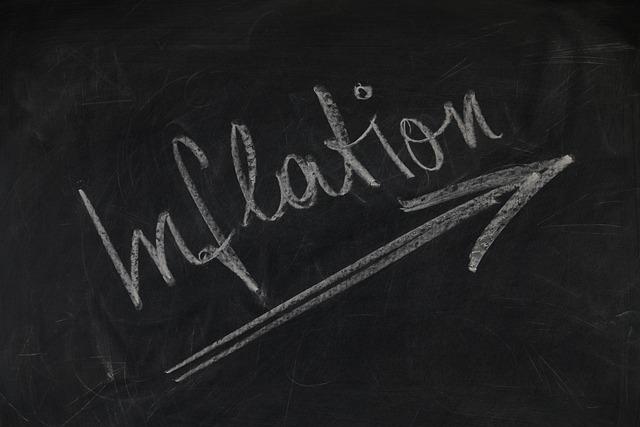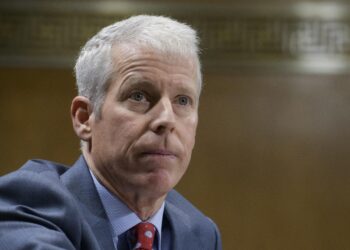Introduction
the Republic of Poland, a vibrant economy at the crossroads of Central and Eastern europe, has garnered important attention from the International Monetary Fund (IMF) in recent years. As Poland continues to navigate the complexities of a rapidly changing global economic landscape, the IMF’s insights and recommendations provide a crucial lens through which to understand the country’s fiscal policies, growth strategies, and macroeconomic challenges. This article delves into selected issues highlighted by the IMF, ranging from fiscal sustainability and inflationary pressures to labor market dynamics and the impact of geopolitical tensions. By examining these critical areas,we aim to offer a extensive overview of Poland’s economic resilience and the strategic measures necessary to foster stability and growth in the face of evolving international uncertainties.
economic Growth Projections and Challenges for Poland

Poland’s economic landscape is currently characterized by a steady but cautious growth trajectory. According to recent forecasts, the country’s GDP is expected to expand by approximately 3.5% over the next year, driven primarily by strong domestic consumption and foreign investment. Key sectors contributing to this growth include manufacturing, information technology, and renewable energy. however, challenges persist, posing potential roadblocks to sustained growth:
- Labor Market Constraints: A growing shortage of skilled labor affects productivity and innovation.
- Inflationary Pressures: Rising energy prices and supply chain disruptions contribute to increased inflation, impacting consumer purchasing power.
- Geopolitical Risks: Tensions in Eastern Europe create uncertainty for foreign investors.
The government’s response to these challenges will be pivotal in shaping the future economic landscape. Implementing reforms in education and workforce progress can help address labor market issues, while proactive measures to stabilize inflation are essential for protecting consumers. Below is a brief overview of target economic indicators for the coming years:
| Indicator | 2024 Target | 2025 Target |
|---|---|---|
| GDP growth Rate | 3.5% | 3.8% |
| Inflation Rate | 2.5% | 2.2% |
| Unemployment Rate | 4.5% | 4.2% |
Fiscal policy and Structural Reforms: Navigating the Post-pandemic Landscape

The road to recovery in the aftermath of the pandemic presents both challenges and opportunities for fiscal policy in Poland. Targeted fiscal interventions have played a crucial role in mitigating the economic fallout. The Polish government, working closely with international bodies, has implemented measures such as direct support for businesses, enhanced unemployment benefits, and targeted investments in healthcare. These initiatives are vital for not only addressing immediate economic hardships but also for laying the groundwork for sustainable recovery. Ensuring that these policies are flexible and responsive to changing economic conditions will be paramount in the upcoming years.
In tandem with fiscal measures, structural reforms are essential for bolstering long-term economic resilience. Emphasis should be placed on areas such as labor market adaptability,digital change,and green energy initiatives. By aligning structural reforms with fiscal strategies, Poland can create a more dynamic economy capable of withstanding future shocks. The integration of public-private partnerships could further enhance the implementation of these reforms, leading to a more innovative and competitive landscape. The combination of these strategies not only promotes growth but also aims at improving social welfare and equity across the nation.
Inflation Trends and Monetary Policy Responses in Poland

Poland has experienced notable fluctuations in inflation rates over the past few years, significantly influenced by external and domestic factors. The pandemic initially subdued prices, but as the economy began to rebound, inflation surged. By mid-2023, inflation rates climbed considerably, driven by escalating energy costs and supply chain disruptions. Key contributors to this trend include:
- Rising Consumer Demand: Post-pandemic recovery lead to increased spending.
- Energy Prices: Global oil and gas price increases have had a direct impact.
- supply Chain Issues: Ongoing logistical challenges have constrained supply.
In response, the National Bank of Poland has adopted a series of monetary policy measures aimed at stabilizing prices and fostering economic growth. Interest rate adjustments have been central to this approach, with the bank raising rates multiple times throughout 2023 to combat inflationary pressures. The bank’s strategy also includes:
- Inflation Targeting: Maintaining a flexible approach to achieve target inflation rates.
- market Monitoring: Close scrutiny of economic indicators to preemptively address potential issues.
- Communication strategies: Clear messaging to maintain public confidence in monetary policy.
| Year | Inflation Rate (%) | Interest Rate (%) |
|---|---|---|
| 2021 | 2.8 | 0.10 |
| 2022 | 6.8 | 1.50 |
| 2023 | 12.5 | 6.00 |
Strengthening Financial Stability: Recommendations from the IMF

The International Monetary Fund has outlined several key recommendations aimed at bolstering the financial stability of Poland, focusing on enhancing regulatory frameworks and ensuring the resilience of financial institutions. One primary suggestion is to strengthen the oversight mechanisms of the banking sector, ensuring that capital requirements are regularly updated to reflect economic fluctuations. Additionally, the IMF emphasizes the need for improved transparency and reporting standards, which can foster greater investor confidence and mitigate risks associated with financial opacity.
Moreover, the Fund advocates for the establishment of a more robust system for stress testing banks and financial institutions, which will aid in identifying vulnerabilities early on. Other recommendations include:
- Encouraging diversification of funding sources for banks to reduce reliance on volatile markets.
- Enhancing cross-border collaboration among regulatory bodies to address potential contagion risks.
- Promoting financial literacy among consumers to encourage informed financial decision-making.
Implementing these measures can significantly contribute to Poland’s overall economic resilience and stability, enabling it to navigate potential global financial shocks more effectively.
Labor Market Dynamics: Addressing Skills mismatches and employment Rates

The dynamics of the labor market in the Republic of Poland have been significantly influenced by evolving economic conditions and demographic shifts. One of the pressing challenges facing employers is a skills mismatch, where the qualifications of job seekers do not align with the needs of the industries. This phenomenon has led to persistent employment gaps in sectors that are critical for the nation’s economic growth, such as technology, engineering, and healthcare. To effectively address this issue, a multi-faceted approach involving education and training reforms, as well as collaborative efforts between governmental bodies and private sector stakeholders, is essential.
In response to the skills mismatch, various initiatives have been launched to enhance employability and align workforce capabilities with market demands. These include:
- Upskilling Programs: Tailored courses and workshops that equip workers with the latest skills in high-demand sectors.
- public-Private Partnerships: Collaborations between educational institutions and businesses to design curricula that meet industry standards.
- Career Guidance Services: Enhanced support for job seekers to help them navigate the employment landscape, hones their skills, and understand market needs.
Moreover,employment rates have shown a positive trend,highlighting the importance of adaptability within the workforce. A comparative analysis of current employment statistics reveals:
| Year | Employment Rate (%) | Unemployment Rate (%) |
|---|---|---|
| 2020 | 56.5 | 6.2 |
| 2021 | 57.8 | 5.9 |
| 2022 | 58.3 | 5.5 |
as these strategies unfold, it is clear that addressing the skills mismatch while fostering a resilient labor market will be pivotal in sustaining Poland’s long-term economic stability and growth.
The Role of Foreign Investment in Polands Economic Future

Foreign investment plays a pivotal role in propelling Poland’s economic landscape towards a sustainable and dynamic future. As the nation continues its transition from a post-communist economy to a vibrant market economy,attracting international capital has become paramount. Foreign Direct investment (FDI) specifically acts as a catalyst, enhancing productivity, fostering innovation, and creating job opportunities. Key sectors benefiting from such influx include:
- Manufacturing: Leveraging advanced technologies and methodologies.
- Information Technology: Enabling the development of a robust digital economy.
- Renewable Energy: Aligning with global sustainability goals.
Moreover, Poland’s strategic location within Europe positions it as a gateway for foreign enterprises looking to expand across the continent. The government’s favorable policies, improved infrastructure, and skilled workforce have further enhanced the attractiveness of the Polish market. A recent analysis highlights the significance of FDI with respect to various economic indicators:
| Indicator | Impact |
|---|---|
| GDP Growth Rate | +4.5% |
| Employment Rate | +2.1 Million Jobs |
| Export Growth | +8% Annually |
Final Thoughts
the International Monetary Fund’s recent assessment of the Republic of Poland sheds light on the country’s robust economic framework while addressing critical challenges on the horizon. As Poland continues to navigate a complex global landscape marked by economic uncertainty and geopolitical tensions, the insights from the IMF highlight the importance of prudent fiscal policies and strategic reforms. The emphasis on sustainable growth, resilience to external shocks, and an inclusive economic strategy will be paramount for Poland as it strives to bolster its position within the European Union and on the global stage. As stakeholders and policymakers digest these findings, the path ahead will require careful balancing of ambitions with pragmatic measures to ensure long-term stability and prosperity for all citizens.











